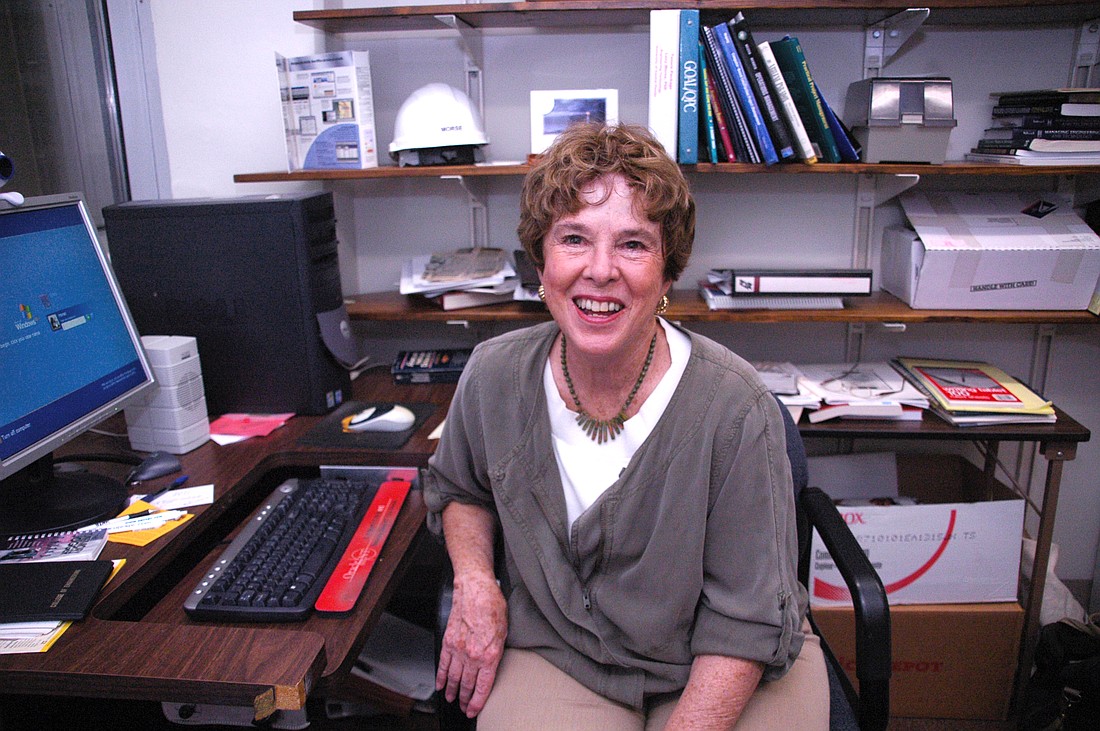- July 26, 2024
-
-
Loading

Loading

As a woman beginning her career in the early 1960s, Lucy Morse was just doing what interested her when she earned a bachelor’s degree in mathematics in 1959. At that time, a lot of young women didn’t even think about having a career, let alone one in the math and science field.
To her, math was easy. Her mother was a math teacher, and her father was an engineer. Math and science were in her blood.
Morse recently received the Bernard R. Sarchet Award in engineering management education from the American Society for Engineering Education in June, as a testament to her accomplishments in the normally male-dominated world of engineering.
First of her kind
Morse became the first woman from the University of Central Florida’s College of Engineering to earn a Ph.D. in industrial engineering in 1987. She was 50 when she did it, having gotten into the field after she moved to Central Florida and had a conversation with someone at a party in Winter Park.
“I’m very proud to have gotten a Ph.D.,” she said. “It’s a big accomplishment… Being the only woman, you get teased all the time. My Ph.D. was in perseverance.”
Besides co-authoring a Prentice Hall engineering management textbook, “Managing Engineering and Technology,” Morse also developed two distance learning video series for educators to teach to non-traditional students that were distributed nationally through PBS.
She’s won several awards, worked on engineering journals and has authored or contributed to hundreds of articles. She’s also served as the chair of the Winter Park Board of Adjustment since 2008.
Inspiring women
She was a full-time faculty member at UCF until 2007, but still teaches engineering management in the spring.
For some students, such as former student Jennifer Annan, Morse’s impact of being a quiet pioneer for women in the field of engineering will linger long after students walk out of her classroom.
“Sometimes you get picked on a little bit, and seeing her as a reference point, someone that has weathered the storm and is still succeeding and … being respected, is what I thought about when I was having a tough day,” said Annan, a 2006 graduate of engineering technology.
Calling Morse a “quiet force” in bringing women to the engineering field, Annan said, “She wasn’t this outspoken advocate. She mainly wanted women to be equal in the field. She wanted woman to be respected. I think she’s done a good job in trying to bring about that change.”
While Morse was pursuing her Ph.D., she started the Women’s Reentry Program in 1982 with about 25 women who already had a degree in science or math looking to pursue higher learning. The program led to UCF experiencing its first round of women in the engineering graduate programs at UCF.
Morse also initiated and administered a program called Expanding Your Horizons in Engineering, Math and Science aimed at exposing middle school girls to technical careers.
Morse also served as the program manager for the Engineering Directorate National Science Foundation in Washington, D.C., where she managed programs for women and minorities in engineering.
Lasting impact
UCF ranks in the top 13 percent of engineering institutions that have awarded bachelor degrees to women in engineering, according to the American Society of Engineering Education. Undergraduate female enrollment in the UCF College of Engineering and Computer Science has grown to about 14 percent and has held steady over the past few years.
Kim Small, an undergraduate academic adviser in the College of Engineering at UCF, said Morse is a role model in the engineering field.
“I know she has female students that still correspond with her,” she said. “To me, when you have someone that still has former students who contact them, you’ve made an impact.”